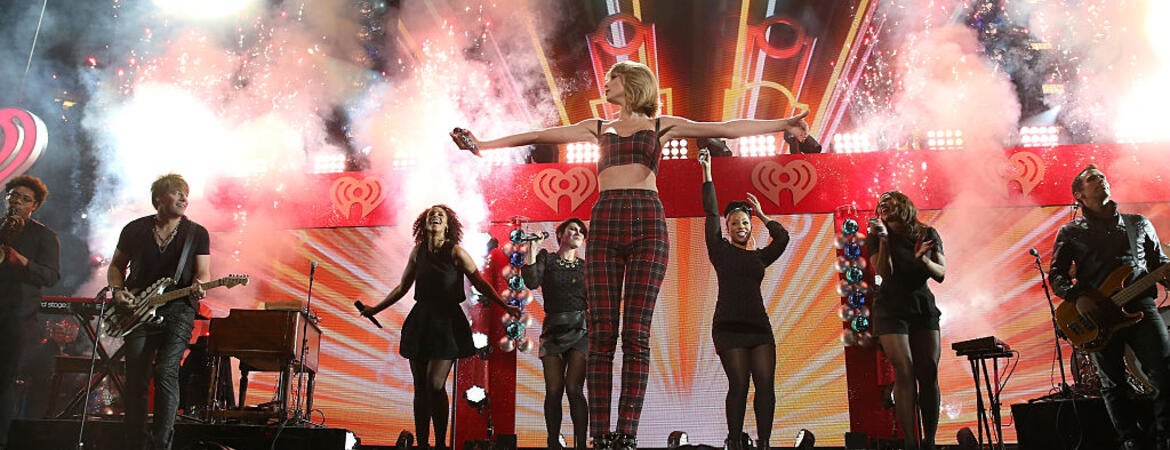
A chaotic rollout of tickets for Taylor Swift’s upcoming tour has drawn renewed scrutiny of whether Ticketmaster unfairly dominates the ticketing industry, a charge that first surfaced in earnest in a 1990s skirmish with the grunge band Pearl Jam. We asked UCR experts whether Ticketmaster is a monopoly and should be subjected to antitrust action. Ken MacVey is a civil litigator for the firm of Best Best & Krieger who handled antitrust and consumer protection law enforcement at the Federal Trade Commission, or FTC, where he prosecuted antitrust investigations and cases involving the motion picture and record industries. This spring, he will teach a class in the School of Public Policy on antitrust and Big Tech.
Q: What is the market share that determines whether an entity holds a monopoly? Do you know the reasoning behind that threshold?
MacVey: There are different ways to measure market or monopoly power. Generally market or monopoly power is the ability for a firm or group of firms to raise prices above a competitive level, to reduce output, or to exclude competitors from the market. Market shares are the most-used way to measure market/monopoly power but not the only way. Courts have found a 90% or more share will establish monopoly power, 70% to 90% will probably establish monopoly or market power, and 50% to 70% may establish market power. But market shares must be put in context. For example, are there barriers to entry that prevent new competitors stepping in when prices are raised? The Department of Justice and the FTC also use more technical measures than simple market shares to evaluate potential anticompetitive conduct and effects that require input from economists.
Q: Are all monopolies “bad” – or prohibited by law?
MacVey: Not all monopolies are bad. In fact, the federal antitrust laws don’t prohibit monopolies. Instead they prohibit “monopolization,” which includes anti-competitive acts and practices to obtain or sustain monopoly power. Regulated water utilities, for example, are monopolies but not illegal. There might be a single gas station in a rural area because there is not enough demand to support more than one gas station and there is nothing wrong with that. Generally speaking, the problem with monopolization is that it forces consumers to pay more while getting less by inhibiting competition.
Q: Why is it difficult for the Federal Trade Commission and Congress to pursue antitrust allegations?
MacVey: Since 1980, federal antitrust enforcement and private antitrust lawsuits have generally declined. There are exceptions. The U.S. Department of Justice has escalated going after price-fixing, such as recently in the case of the tuna industry, and been very successful in doing so. But other antitrust challenges have declined, such as going after mergers. This is in contrast to the European Union, which has been much more aggressive.
The reason for this decline is that there was a shift in legal, economic and policy thinking due to influence by what is called the “Chicago School of Economics.” Originally this referred to economists based at the University of Chicago, but is broader. This “school” is very pro-market and anti-regulatory oriented. Its thinking was very aggressively promoted, some of which was under the radar. For example, several national corporations, including corporations like IBM that were facing antitrust lawsuits, funded courses for federal judges to take for free that were taught by Chicago School-type economists. At one point as many as 40% of federal judges took these courses from an institute associated with a specific law school but which did not identify the corporate sponsors. Recently, some academic studies by economists have tried to assess statistically the impact this program has had on legal decisions.
In the last few years, there has been a policy shift by antitrust scholars, economists, and policy makers away from the Chicago School. More argue that antitrust enforcement has been too lax. Recent Noble honorees in economics are in that camp. For example recent Noble winner Jean Tirole has developed sophisticated economic models based on game theory in rebutting positions of the Chicago School and showing how firms may engage in anti-competitive practices that could be curbed by antitrust enforcement. The political climate is also changing. There is tremendous interest in Congress in re-invigorating antitrust enforcement and strengthening the antitrust laws. This is coming from both the right and the left, from Democrats and Republicans. Sen. (Amy) Klobuchar, who many consider to be a liberal Democrat, and Sen. (Charles) Grassley, who many consider to be a conservative Republican, are co-sponsoring the American Innovation and Choice Online Act. This bi-partisan concern focuses on the power of Big Tech, such as Amazon, Google, Apple, Meta/Facebook, but also on the perception that important markets have become much more concentrated in recent decades due to lax antitrust enforcement.
Q: Is an antitrust course likely to succeed against Ticketmaster? Why or why not?
MacVey: It is hard to say what will happen with Ticketmaster. It was already facing antitrust scrutiny before the Taylor Swift ticket fiasco.
Live Nation merged with Ticketmaster in 2010 when it was already the world’s largest concert promoter. Many in the entertainment industry objected to the merger as anti-competitive but the U.S. Department of Justice allowed the merger to go through under certain conditions. The Department of Justice found in 2019 that Live Nation/Ticketmaster violated those conditions and had them extended so they would not expire.
Taylor Swift has herself brought an antitrust suit against Ticketmaster for its botched handling of her latest concert tour. The U.S. Department of Justice has opened a new antitrust investigation. And Sen. Klobuchar, who chairs the Senate antitrust subcommittee, joined by Republican Sen. (Mike) Lee, has announced that they will hold a hearing on the concert-ticketing business. It will be interesting to watch.



